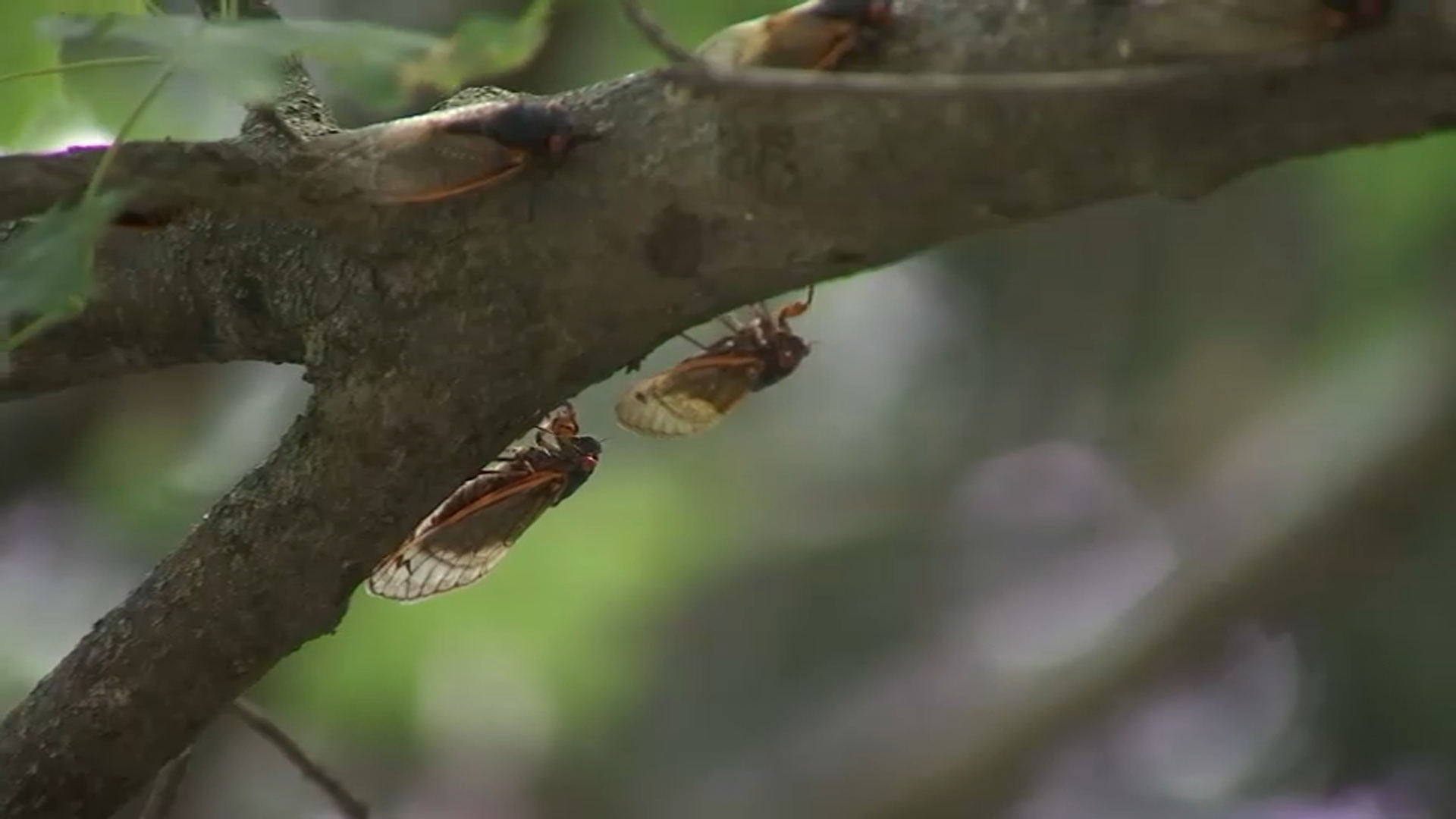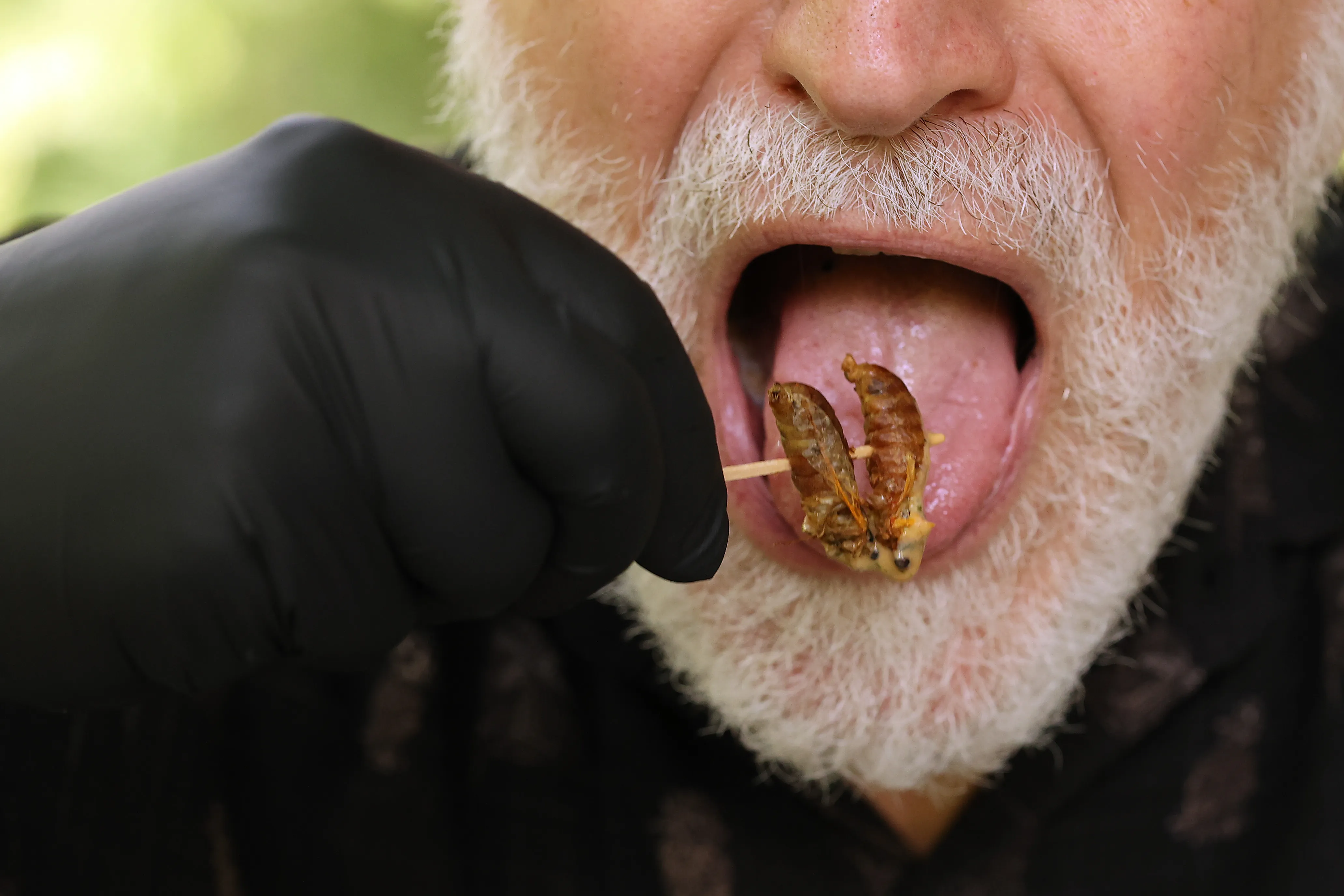As Illinois prepares for a cicada emergence unlike anything residents have seen in more than two centuries, the insects' emergence from the ground may not be the only obstacle to tackle.
Once the animals die, there could be piles of dead cicadas to deal with.
The 2024 cicada explosion will see two different broods of cicadas — one that lives and breeds on a 13-year cycle and another on a 17-year cycle — emerging from underground at the same time, bringing billions to the surface.
The rare event involving Brood XIII and Brood XIX, which could bring billions of cicadas to the surface, only occurs once every 221 years.
Feeling out of the loop? We'll catch you up on the Chicago news you need to know. Sign up for the weekly Chicago Catch-Up newsletter here.
And Illinois is in a unique position to see it all.
Illinois will see emergences from their respective broods in the north and the south, but for some in a narrow band in central portions of the state, both broods could emerge at the same time.
"This is like the year for Illinois," cicada expert Catherine Dana, an affiliate with the Illinois Natural History Survey, told NBC Chicago. "We are going to have cicadas emerging all over the state."
The Northern Illinois Brood itself is huge, with a reputation for the "largest emergence of cicadas anywhere," according to the University of Illinois.
In 1956, entomologists reported as many as 311 "emergence holes" per square yard in a forested floodplain near Chicago, which experts say translated to 1.5 million cicadas per acre, according to the University of Illinois.
"When the cicadas start dying and dropping from the trees later in the spring, there are large numbers on the ground, and the odor from their rotting bodies is noticeable," the U of I reports. "In 1990, there were reports from people in Chicago having to use snow shovels to clear their sidewalks of the dead cicadas."
That could happen again.
Experts anticipate "enormous numbers" once again, with anywhere from 50,000 cicadas per acre to 1.5 million cicadas per acre could emerge for the spring of 2024.
"That is possible because remember that every single individual cicada will produce, their nymphal skin will be shed, that builds up and then as they start dying after they're done with their reproduction and laying eggs, that'll start collecting," said Dr. Gene Kritsky, dean of Behavioral and Natural Sciences at Mount St. Joseph University in Cincinnati. "And people have been known to have to shovel some of those excess carcasses and shells away from their their trees, because ... after that happens, after they collect in the trees, they can start smelling as they decay."
Dana added that gutters could also become clogged.
"You might need to shovel them out of the gutters, you know, we don't want to block up our gutters," she said. "Oftentimes, I see them kind of in piles, you know, along with the shells, right? I see them in piles at the base of trees, like right in the nooks in between the roots. They tend to get a lot of piles there. But just add them to your compost pile, you know, just let them break down."
The two 2024 broods will emerge earlier than the well-known "dog day" cicadas, which are often seen in early July, according to Dana.
Cicadas typically emerge as the ground begins to warm in the spring and early summer.
That means an emergence between mid-May and early June, though some could start as early as late April.
For the Chicago area, Brood XIII will be most seen in parts of northern Illinois and Indiana, and possibly even in Wisconsin and Ohio.
Meanwhile, Brood XIX cicadas have a more widespread population, covering parts of Missouri, Illinois, Louisiana, North Carolina, Virginia and Maryland.
Cicadas are not harmful to people or pets, or even to household gardens or crops, according to the Environmental Protection Agency.
Cicadas don’t bite or sting and pesticides will not work on periodical cicadas, experts say.
"Most of the state of Illinois will experience periodical cicada emergence in 2024," the University of Illinois said. "Besides the noise, which may be substantial, this large group of insects is harmless and can be appreciated and enjoyed by nature lovers of all ages."
In a year of full emergence, when the bugs surface, they quickly begin mating, which is often met with the noise most associate with cicadas.
Male cicadas can reach decibels similar to a lawn mower or passing jet, and their numbers will be large, but their life cycle is short, at just four to six weeks. Then, the adults die but leave behind a new generation. Those nymphs will live underground until the year 2038.
"What happens is when you have this many cicadas ... all together in one place, then it can be deafening," Dana said.
Kritsky, who has been measuring cicada sounds for multiple broods, said the loudest he's recorded has been 96 decibels.
"To put that in perspective, if you're living near O'Hare Airport, in Elmhurst, or Northlake and that area, this will drown out the jets flying in and out. And if you spent any time in a cicada woods where they're just screaming, and you get back in your car, you'll still hear that vibration in your head," he said. "It's like going to a rock concert, you're on your back in your car, and you still feel that music in your head."
For those wondering just how big the emergence ends up becoming, Kritsky designed an app which will track the emergence as it happens across the country, allowing people to submit photos and reports of cicada sightings.
Either way, the experience will be once in a lifetime.
"The next time that we'll see a dual emergence like this in the greater Chicago area is going to be in 2245, [which] will be the next time that brood XIII comes out with brood XIX in Illinois. So I don't think we'll see it in our lifetime," Kritsky said.




